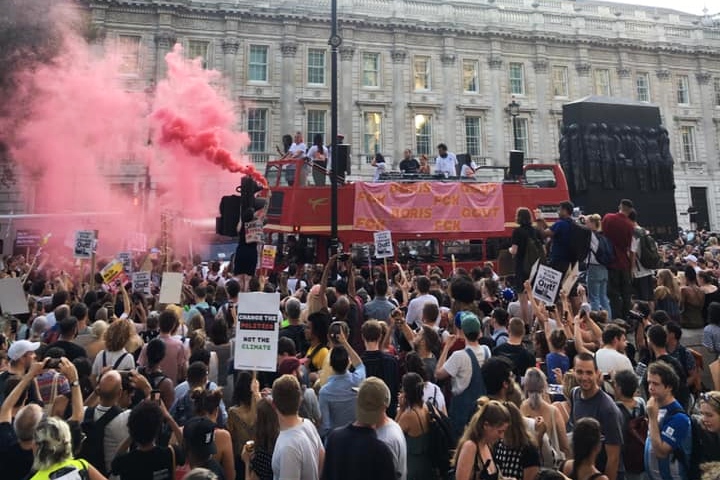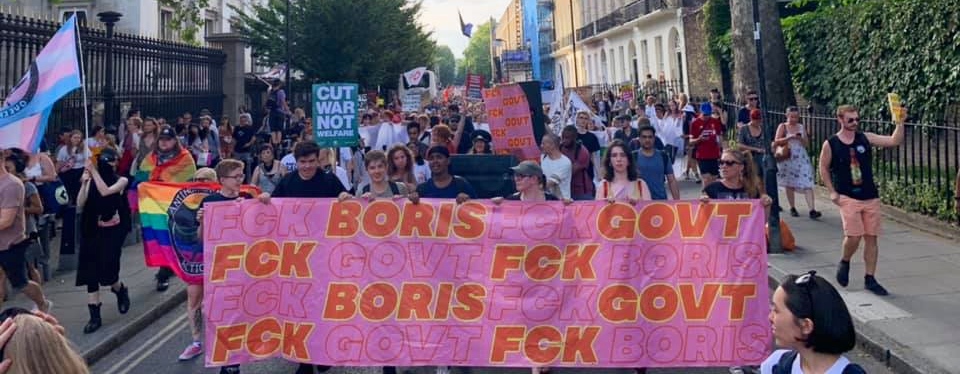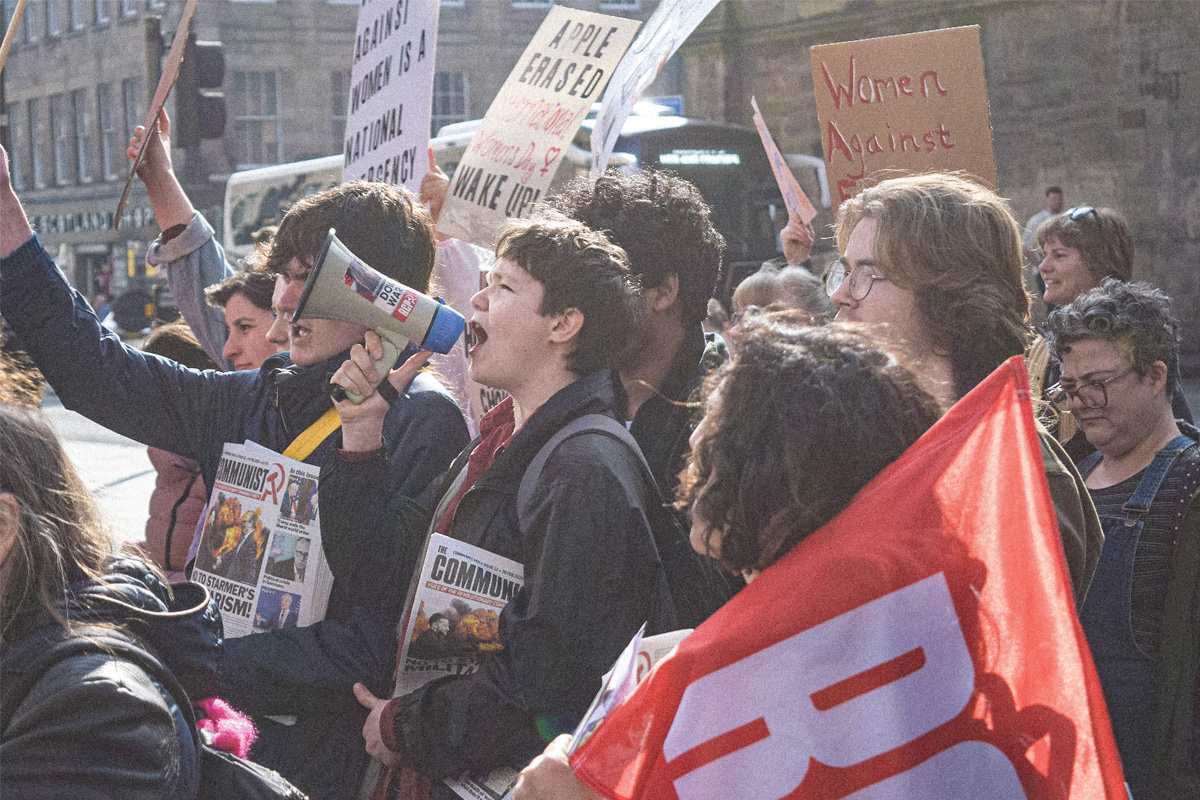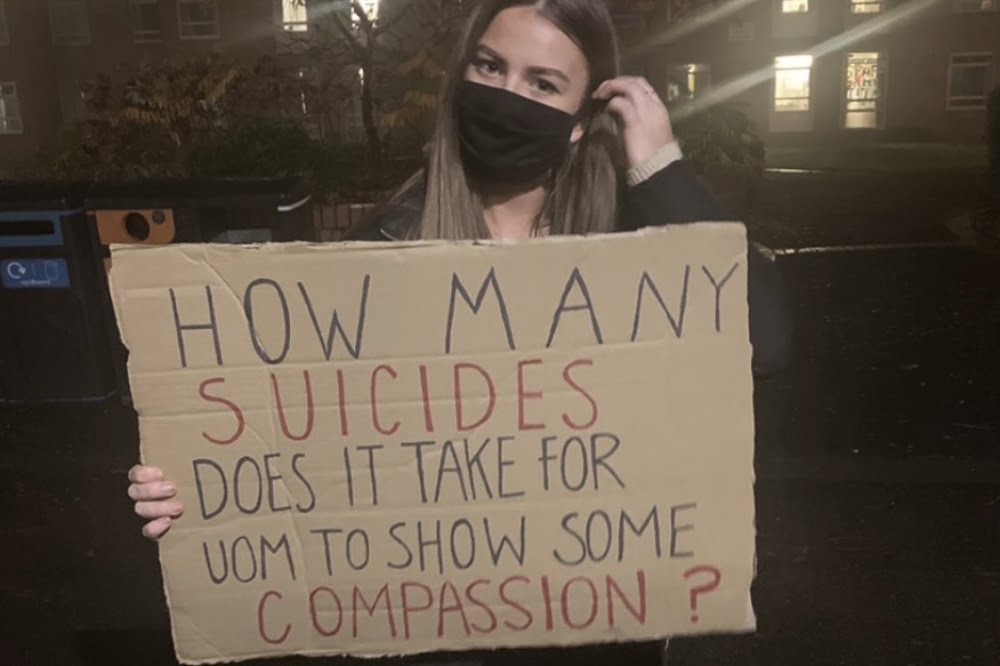Boris Johnson was met with a wave of anger and protest on his first day in office, as thousands took to the streets in London to oppose Britain’s latest reactionary prime minister. We say: Kick out all the Tories! General election now!
The election of Boris Johnson as Conservative Party leader and his consequent appointment as Prime Minister has unleashed a visceral wave of anger and disgust amongst workers and young people across Britain.
Within hours of Boris taking up his residency in Number 10, up to 10,000 protesters marched on Downing Street with a clear message: ‘Fuck Boris’. It is hard to think of a prime minister in living memory whose appointment has triggered such immediate protest.
Government of the rich

The demo started with a rally in Russell Square, where thousands or predominantly young protesters poured in, waving hand-made placards and chanting radical slogans. Many of these were references to Boris’ blatant racism, sexism, and homophobia. But there was also a clear class content on display, with opposition to Johnson’s support for the bankers and bosses.
John McDonnell, the Labour shadow chancellor, addressed the crowd. Like the protesters, he focused on examples of Boris’ racism. But he also explained how Johnson’s government would do even more than May’s to attack workers and shovel cash into the pockets of the rich. The left-wing Labour MP cited Boris’ proposed massive tax cuts as an example of this. To thundering applause, McDonnell said that Labour will do everything in their power to bring down Boris and his reactionary government.
Militant mood
After the speeches, the demonstration set off seemingly spontaneously in the direction of Downing Street. The atmosphere on the streets was electric with anger, as the crowd marched with a passion rarely seen on British demonstrations.
There was a palpable feeling that protesters would be willing to do anything to remove this hated man from office. The atmosphere and militancy was reminiscent of the 2010 student protests against tuition fees.
As the crowd surrounded Downing Street, the demo was put into lockdown, with the gates blockaded by police officers and riots vans.
All the while, Boris Johnson was inside Number 10 busily appointing one of the most openly reactionary cabinets in living memory. When Tory MP Grant Shapps turned up at around 8pm for his audience with the PM, he was faced with an unmoving wall of protesters and forced to scuttle off to a private back entrance.
Boris out! Corbyn in!
 It is obvious that the sight and thought of Boris Johnson as Prime Minister has reignited a burning hatred of the Tories and the system they represent.
It is obvious that the sight and thought of Boris Johnson as Prime Minister has reignited a burning hatred of the Tories and the system they represent.
But simple demonstrations, no matter how passionate, will not be enough to bring down this racist clown and his rotten government. What is needed is a political solution. And that solution must be a general election and the victory of a socialist Labour government, led by Jeremy Corbyn.
Such is the ruling class’ fear of a Corbyn government, however, that they will avoid a general election at all costs. This means that we must organise and fight to force an election.
If Labour and the trade unions were to channel the energy seen on the streets of London last night into a mass movement of strikes and protests, this weak and fragile government could be brought down in a matter of weeks.
It is not enough for Labour to simply oppose Boris, however. Corbyn must prove that he has a bold vision to offer in Johnson’s place; that he has the answers to the problems faced by workers and youth; that he has a genuine, clear alternative to the relentless austerity the Tories have presided over for the past nine years. That alternative can only be the socialist transformation of society.






